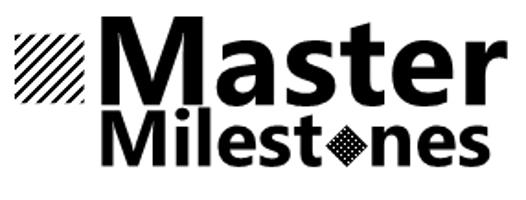The 10 Commandments of Project Management
Build Strong Relationships with Stakeholders
Why? Successful projects rely heavily on stakeholder support and trust.
How: Schedule regular check-ins with key stakeholders to align expectations and provide updates.
Use stakeholder maps to prioritize communication efforts.
Pro Tip: Address concerns proactively and always follow through on commitments to build credibility.
1


Project management is both an art and a science, requiring a unique combination of strategy, communication, and leadership. While many project managers know the basics, there are nuanced best practices that separate good managers from great ones. Think of these as the 10 Commandments of Project Management, a collection of essential, practical, and sometimes overlooked principles that can elevate your project outcomes.
These tips focus on practical insights, innovative techniques, and time-tested strategies to help you overcome challenges, empower your team, and deliver better results. Whether you’re a seasoned pro or just starting your journey, these commandments are designed to inspire and guide you toward project management mastery.
Prioritize Communication Clarity
Why? Miscommunication is one of the leading causes of project delays and failures.
How: Use standardized templates for project updates and keep communication concise.
When possible, confirm understanding through summaries or follow-up emails.
Pro Tip: Use visuals like dashboards or Gantt charts to convey complex data.
2
Leverage Technology, but Keep It Simple
Why? Tools streamline processes, but overly complex systems can slow down the team.
How: Choose tools suited to your project size and team’s familiarity. Start with lightweight options like Trello for smaller teams, and scale to advanced platforms like Monday.com or Jira if needed.
Pro Tip: Invest time in training the team to ensure tools are used effectively.
3
Practice Risk Anticipation and Mitigation
Why? Most project setbacks are due to risks that weren’t addressed in advance.
How: Conduct a risk assessment at the start of the project and update it regularly. Implement a “pre-mortem” exercise to anticipate failure scenarios.
Pro Tip: Assign owners for each major risk to ensure accountability for mitigation.
4
Master Time Blocking
Why? Managing your time as a project manager is just as important as managing the team’s time.
How: Use time-blocking techniques to dedicate specific hours to strategic tasks like planning, meetings, and issue resolution.
Pro Tip: Reserve 15 minutes at the end of each day to review progress and reprioritize for tomorrow.
5
Empower Your Team
Why? Micromanaging demotivates the team and prevents you from focusing on the bigger picture.
How: Delegate responsibilities clearly and allow team members to make decisions within their scope. Provide support when needed but avoid constant oversight.
Pro Tip: Recognize individual and team achievements to build morale and trust.
6
Be Flexible, Not Reactive
Why? Projects rarely go exactly as planned; being adaptable ensures you can handle changes without derailing progress.
How: Maintain a contingency buffer in the budget and timeline. Use rolling wave planning to refine future phases as the project evolves.
Pro Tip: Always differentiate between critical changes and minor disruptions to avoid overreacting.
7
Learn from Post-Mortems
Why? Lessons learned are invaluable for improving future projects.
How: Conduct a structured post-mortem at the end of the project. Highlight successes, identify gaps, and document actionable takeaways.
Pro Tip: Share findings with the entire organization to promote collective learning.
8
Align Tasks with Business Goals
Why? Projects are successful when they create tangible value for the organization.
How: Regularly revisit project objectives and KPIs to ensure alignment with overarching business goals. Adjust deliverables if priorities shift.
Pro Tip: Communicate the "why" behind every task to the team to maintain focus and purpose.
9
Stay Calm Under Pressure
Why? A composed project manager instills confidence in the team and stakeholders.
How: Develop coping strategies for high-stress situations, like focusing on actionable next steps or taking a short break to refocus.
Pro Tip: Keep a backup plan for critical tasks or deliverables to avoid panicking during unexp
